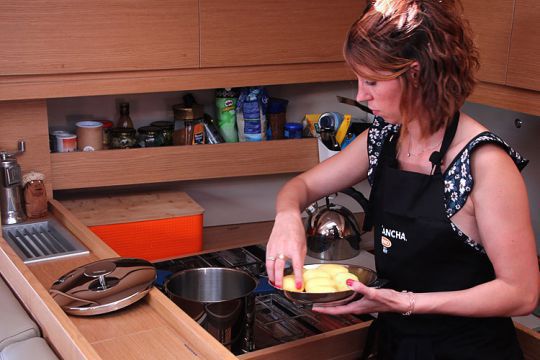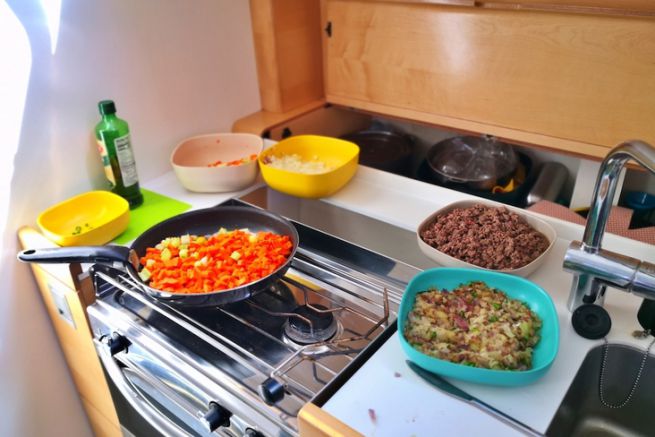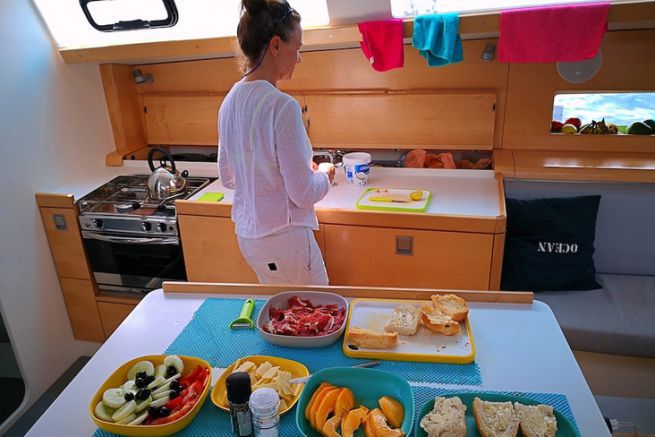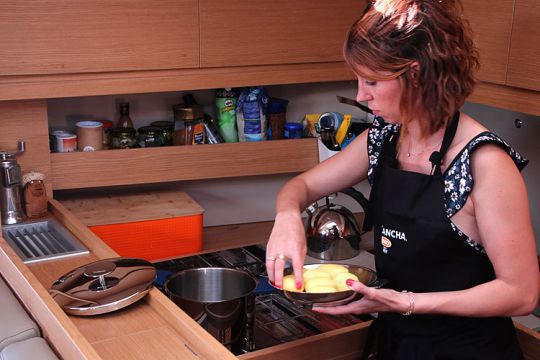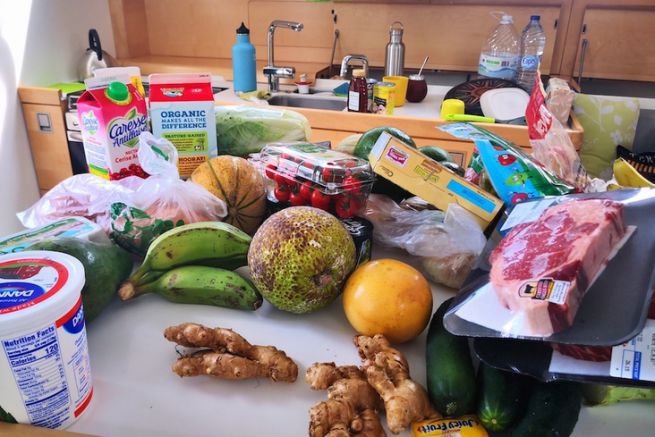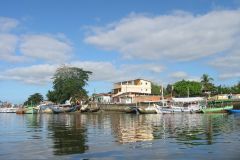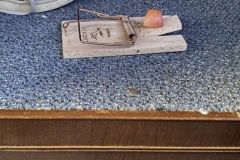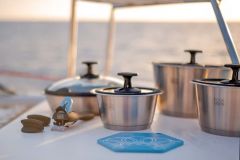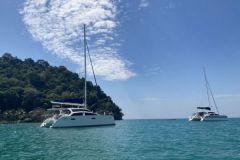Cooking outside as much as possible
Inside the boat it gets hot very quickly, there is little air circulation, you can't see what's going on outside, and in the lazarette you often end up missing the sunset. You have to admit, sometimes, being busy in the kitchen is a purgatory. So you have to work together and when it's possible outside, so the kitchen remains a pleasure to share.
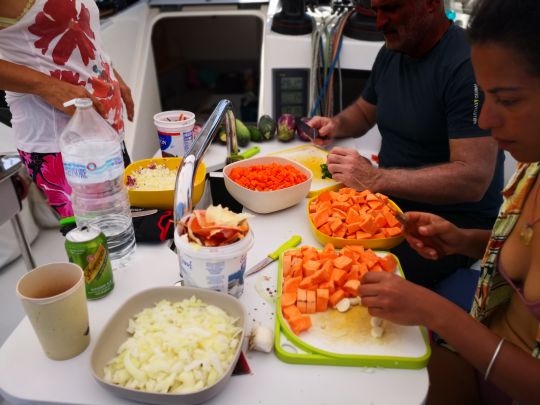
Come to think of it, you can prepare a lot of things in the cockpit, especially if you're at anchor. And if you're sailing under mild skies, you won't have to resist the BBQ for long. So if you're lucky, throw in some fish steaks, a few sausages, help yourself to a drink, and relax. And last but not least, cooking outside avoids the smells on board the boat.
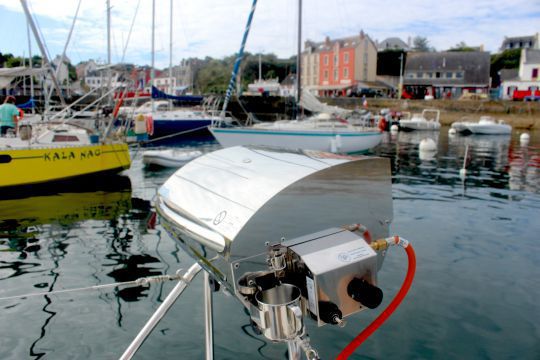
Waste management
Waste management takes its full measure on board a confined space such as a ship, and it is even worse in hot countries. Not only is the waste difficult to store, but it quickly gives off a foul odour and is a source of unwanted insects on board your boat ( Tropical navigation, how to avoid the cockroach on board)
Therefore, create as little waste as possible and have clean garbage cans. Limiting the volume of waste is already fighting against overpackaging, you will be surprised at the proportions it takes. Don't take on board superfluous cardboard and plastic packaging.
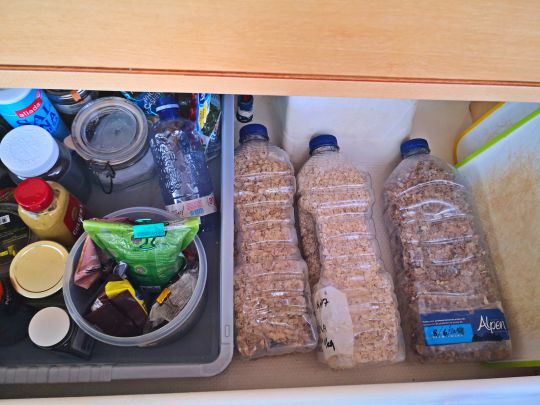
Once almost all packaging has been removed, develop a system for sorting biological waste from other waste. All bio-waste should be disposed of at sea and the bins should be kept clean up to the port of call.
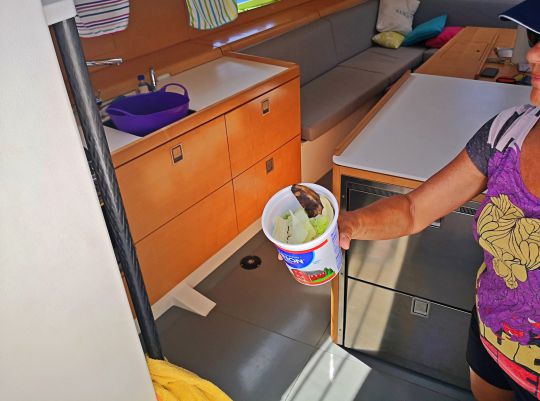
Safety first and foremost
The main criterion of a good lazarette is its level of security. You don't mess with that. The galley and the engine room are probably the most dangerous places on board, especially in terms of fire. Regulations require at least 1 extinguisher of minimum capacity 5A/34B and a fire blanket, which is also effective for this type of fire. Refer to this article for know how to fight fire on board a boat .
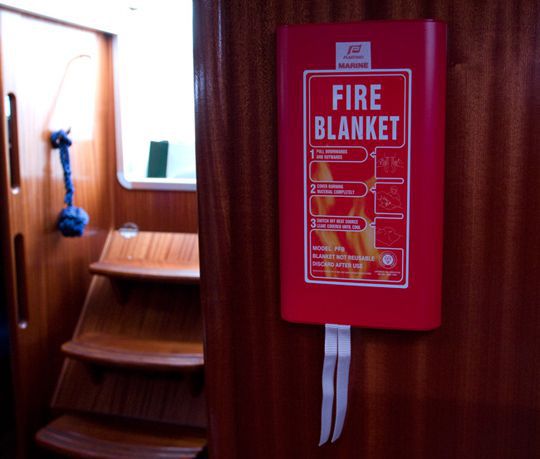
The risk of gas explosion must also be taken into account. Propane is a popular choice, however, it is also a dense gas that, in the event of a leak, will spread to the bottom. Fortunately, there are propane alarms that are suitable for boats. Smoke alarms and possibly a first aid kit should also be available near the galley.
Finally, some sailors install a strap in front of the gas cooker to keep it up in case of bad weather, I prefer to avoid it so that I can escape if necessary.
And when the weather and the sea are really bad, you have to know how to avoid cooking. Many quality products are available in freeze-dried or aperitif, a little hot water, a little patience and it's ready to eat.
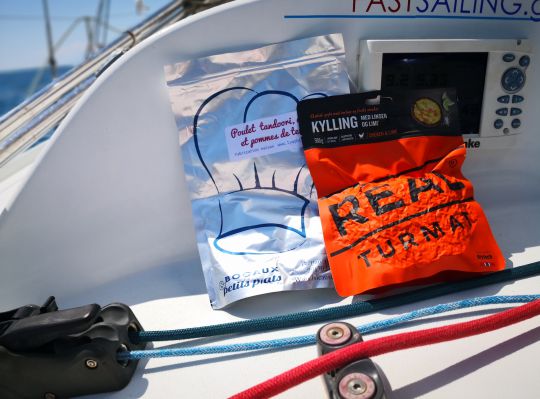
We invite you to enrich this dossier with your experiences. You can share your contributions through the comments at the bottom of the articles.
